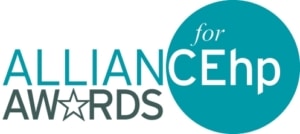Educational outcomes data are important to determine that change occurred as a result of the CME activity, but it is also important for the design of future activities that we identify factors that influence practice behaviors to better understand what motivates or prevents best practice implementation. Using predictive modeling, we sought to understand the variables that influence change.
What issue(s) did you seek to address?
Patients with inflammatory bowel disease (IBD) experience symptoms that are mild to severe and which can adversely impact quality of life. In addition, some patients are at increased risk for colectomy. It is therefore essential that HCPs identify high-risk patients and plan their treatment appropriately. Despite the availability of treatment guidelines and clinical pathways, the remission rate for IBD is low, indicating that current treatment strategies are suboptimal. This gap in care highlighted an opportunity for a CME activity designed to educate HCPs treating patients with IBD on the clinical progression of IBD and its impact on patient outcomes, the various factors influencing treatment decisions, and how a proactive, personalized approach can also lead to optimal patient outcomes.
What did you do?
CMEO designed a CME activity on IBD which consisted of a faculty-led webcast based on a live symposium at the Academy of Managed Care Pharmacy annual meeting. Surveys assessing knowledge, confidence, and behavior were administered before, immediately following, and 3 months post-activity. An analysis using PredictCME (based on chi-square automatic interaction detection) was conducted on data from the pre-activity survey, which included a behavior question related to utilizing a proactive, personalized approach weighing risk/benefit and cost when making treatment decisions. This was used as the response variable in the model. Predictor variables included demographics, knowledge, evaluation, and self-rating of ability for integrating concepts about disease progression into decision making.
What was the result?
4,400+ HCPs participated in the live and enduring webcast, with 168 HCPs participating in the pre-survey used for the analysis. 20% of learners at pre-survey utilized a proactive, personalized approach weighing risk/benefit and cost when making treatment decisions in at least half their patients. The strongest predictor was self-rating of ability. Those who rated their ability as good/excellent were more likely to perform the practice behavior compared to those who rated their ability as fair/poor (p < .001). A secondary predictor, affecting only those who rated their ability as good/excellent, was overall knowledge (p < .01), with those scoring at least 50% correct on knowledge questions more likely to perform the behavior (63%) than those who achieved less than 50% correct (18%).
What did you learn?
The finding that self-rating of ability was the strongest predictor of behavior was not surprising as early behavior studies found confidence to influence behavior. The finding that knowledge did not influence behavior of those who rated their ability as fair or poor indicates that self-rating of ability is enough to prevent HCPs from implementing behaviors, whether or not they have the knowledge. This highlights the importance of designing education that improves confidence, not just knowledge.







